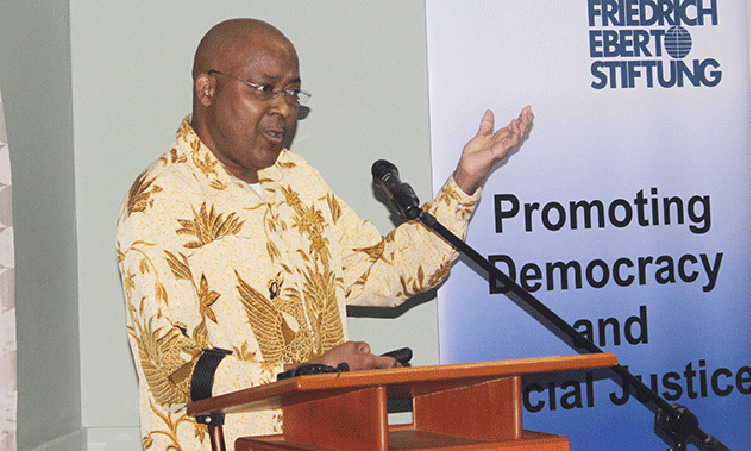As Namibia is set to put a four-day workweek on trial starting in April, experts are divided on its feasibility and implications for the economy.
The pilot project will run for six months.
The initiative is spearheaded by Pulse HR Network Namibia, which says 15 organisations have signed up for the trial thus far.
Economist Omu Kakujaha-Matundu views the initiative with cautious optimism, acknowledging its potential benefits for certain sectors. He says it could work for certain companies.
“Yes, it could work in sectors where productivity could be increased or remain the same as with a five-day week. Also, where your activities are not geared towards servicing other companies on a five-day week,” he says.
Kakujaha-Matundu says it would, however, demand a huge overhaul.
“With artificial intelligence, the world is changing, but for now, economy-wide application of the four-day week is a non-starter. It involves not only local stakeholders or business partners, but also our international trade partners, most of whom are on a five-day week,” he says.
He says the conversation around a four-day workweek should be entertained though, given the rapidly changing future of work.
The Ministry of Labour, Industrial Relations and Employment Creation has confirmed it has not had any formal discussion with Pulse HR Network Namibia, as the project is a private research endeavour.
While acknowledging the evolving nature of work, particularly accelerated by the Covid-19 pandemic, Popular Democratic Movement parliamentarian Maximalliant Katjimune stresses the need for a nuanced approach that considers the diverse operational requirements of different sectors.
“It depends on how that particular industry actually operates, and the kind of service it renders. There are some industries that could probably afford the four-day workweek, but others cannot afford it at all – especially critical services in the public sector – without addressing issues of staff shortages, for example,” he says.
Katjimune says a blanket approach cannot be taken on the initiative, and it should be multifaceted.
The four-day workweek is based on the 100-80-100 model, developed by the co-founders of 4 Day Week Global, Andrew Barnes and Charlotte Lockhart.
The model prescribes 100% of the pay for 80% of the time in exchange for a commitment to delivering 100% of the output.
One of the arguments supporting this endeavour is that people would be more motivated if they worked fewer hours, and would therefore be more productive.
Bärbel Kirchner, the chief executive of the Construction Industries Federation, says the current reality in Namibia is that productivity is such that only 40% of work is being done 100% of the time.
She is sceptical about the feasibility of a four-day workweek, particularly in the context of Namibia’s circumstances, and specifically within the construction sector.
“An industry like the construction sector that engages a lot of machinery that need to be operated would need to run more instead of fewer hours to fully see the return of capital investment.
“To achieve both, a reduction of work hours for the individual and a return of investment may lead to an increase in shift work. That would lead to additional costs,” Kirchner says.
She says four-day workweek research needs to be carefully considered and needs to take cognisance of the nature of Namibia’s labour market, which is entirely different from that of other countries.
“It may work in an environment where people are highly competitive, are very work-focussed, and can work largely proactively, innovatively and independently. Are we that in Namibia?” Kirchner asks.
The concept of a four-day workweek has undergone trials in various countries, including South Africa.
Research conducted in South Africa has shown that companies, on average, rated their experience with this alternative work schedule as 8 out of 10.
About 92% of these companies expressed a definite intention to either continue the four-day workweek or were actively considering its continuation.
In addition, South African employees valued their time off so much that 51% say they would want a 21% to 50% pay increase to revert to a five-day workweek at their next jobs, while 13% said no amount of money would get them to return to the five-day formula.
Jonas IIeka from Pulse HR Network Namibia says the adoption of the four-day workweek by companies during the trial would depend on the level of interest they express.
“We are not targeting any specific company; it’s going to be a call for people to join the trial,” he says.
Stay informed with The Namibian – your source for credible journalism. Get in-depth reporting and opinions for
only N$85 a month. Invest in journalism, invest in democracy –
Subscribe Now!






